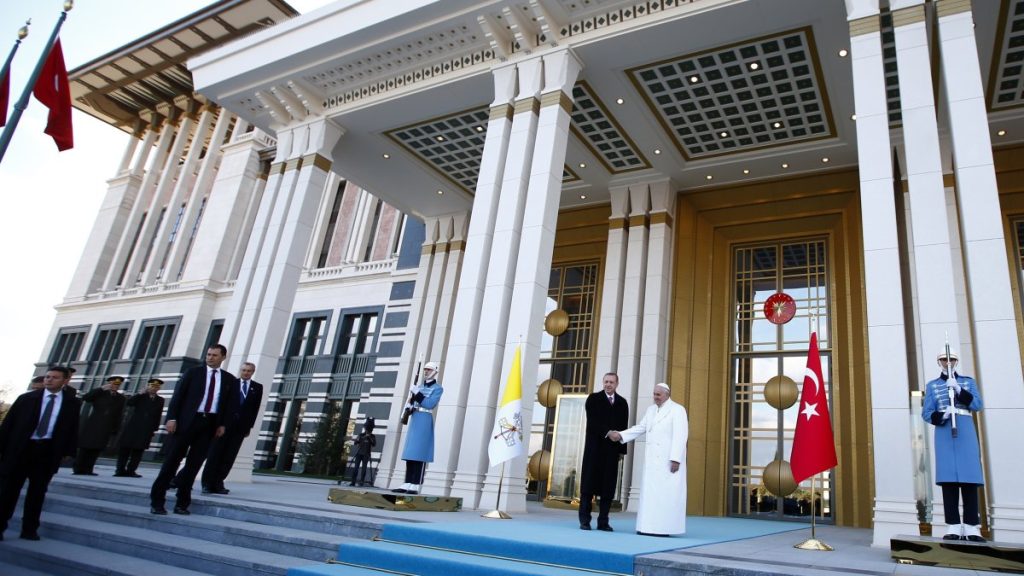As the Vatican prepares to elect a new spiritual leader following the death of Pope Francis on April 21, Turkish diplomats who previously served as ambassadors to the Holy See are weighing in on the legacy of the late pontiff and what his passing could mean for global diplomacy.
Former envoys Kenan Gürsoy and Mehmet Paçacı offered contrasting perspectives on Francis’s relationship with Türkiye, the shifting balance of power within the Vatican and the growing influence of the United States in Church affairs.
Speaking to Anadolu Agency (AA), both diplomats highlighted key moments in Türkiye-Vatican relations, drawing attention to early diplomatic frictions and the growing geopolitical influence exerted by the U.S. over the Holy See.
Gürsoy, who served as Türkiye’s ambassador to the Vatican during the early years of Pope Francis’s papacy, acknowledged the pope’s efforts to project humility and social justice. However, he also recalled an initial period of diplomatic strain.
“There are issues Türkiye is sensitive about, and he acted rather recklessly in the early years,” Gürsoy said. “He made assessments not aligned with the Church’s official stance, but rather based on personal views. Fortunately, he later shifted toward more agreeable actions.”
Despite early criticism, Gürsoy recognized Pope Francis’s broader appeal: “He sought to bring unity to a fragmented Church and gave hope to marginalized populations affected by global capitalist pressures. The Vatican, I believe, appreciated his direction.”
Reflecting on U.S. President Donald Trump’s planned attendance at the pope’s funeral, Gürsoy suggested it could signal broader geopolitical recalibrations.
“If America shows such reverence to the papacy, could this mark a shift toward a different vision of peace – one more inclusive of the poor, migrants and Palestinians?” he asked. “It’s something worth observing.”
He further emphasized the Vatican’s distinctive position on the Palestine issue: “Its view was markedly different from the general Western stance and this deserves recognition – not only for Christians but also for Muslims and the oppressed.”
Paçacı, who served as ambassador between 2014 and 2019, highlighted one of the most difficult periods in Turkish-Vatican relations – when Pope Francis publicly referred to the 1915 events as “genocide.” The statement triggered a diplomatic freeze lasting nearly a year.
“That period was very challenging for bilateral relations. It felt as though our ties were temporarily suspended,” Paçacı said. “Over time, both sides managed to stabilize relations with fewer ups and downs.”
Paçacı also noted a growing perception of American influence over Vatican affairs. “The day before his death, the pope met with U.S. Vice President JD Vance. Now, President Trump is attending the funeral. From across the ocean, we sense the U.S. is trying to influence the Vatican.”
He added that speculation about the next pope includes candidates from Africa or Southeast Asia, such as those from the Philippines.
“Catholicism is weakening in Europe. The momentum may shift toward regions where the Church is more vibrant,” he said. “While predictions are always difficult, the probability of a non-European pope seems to have slightly increased.”


